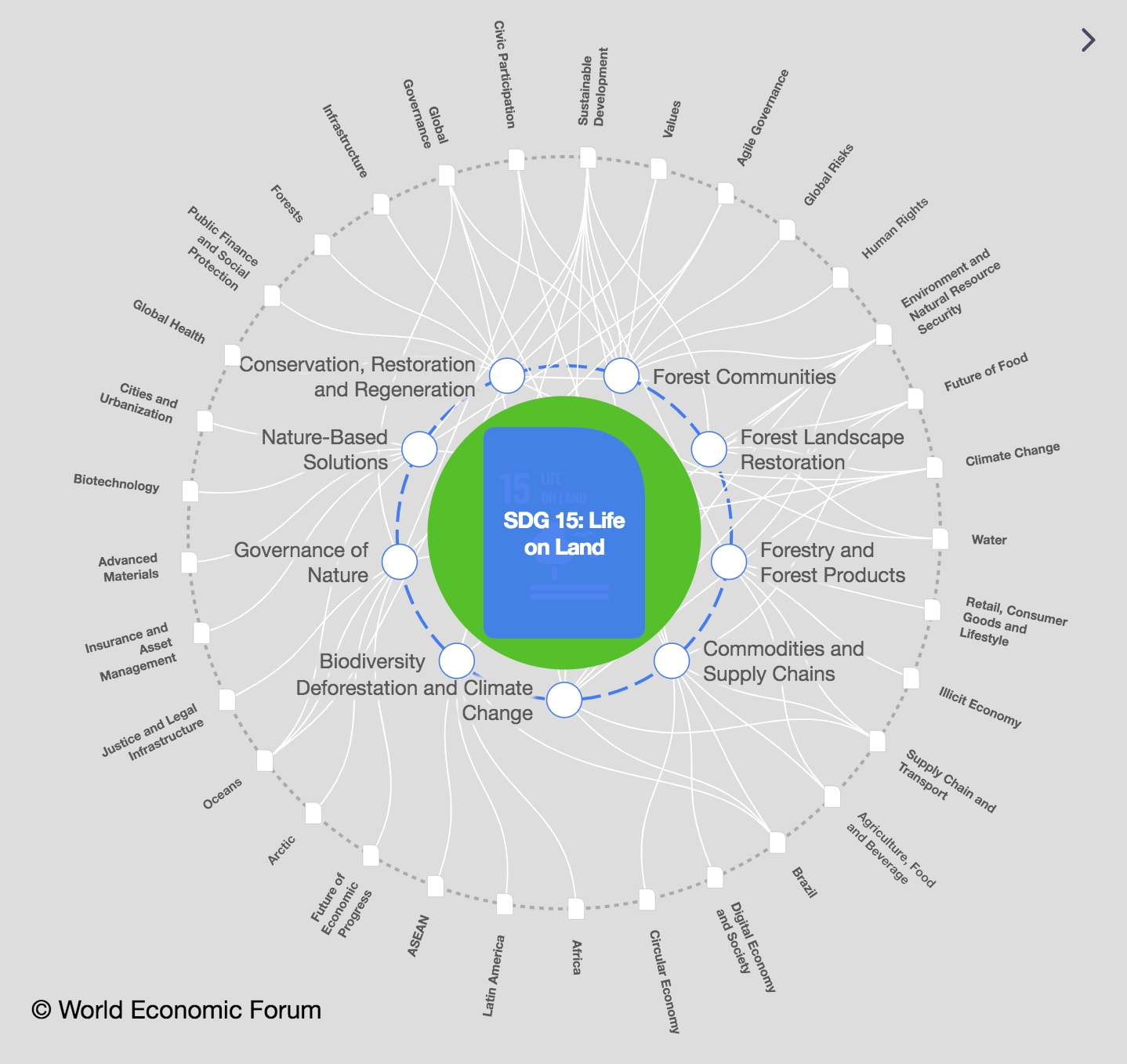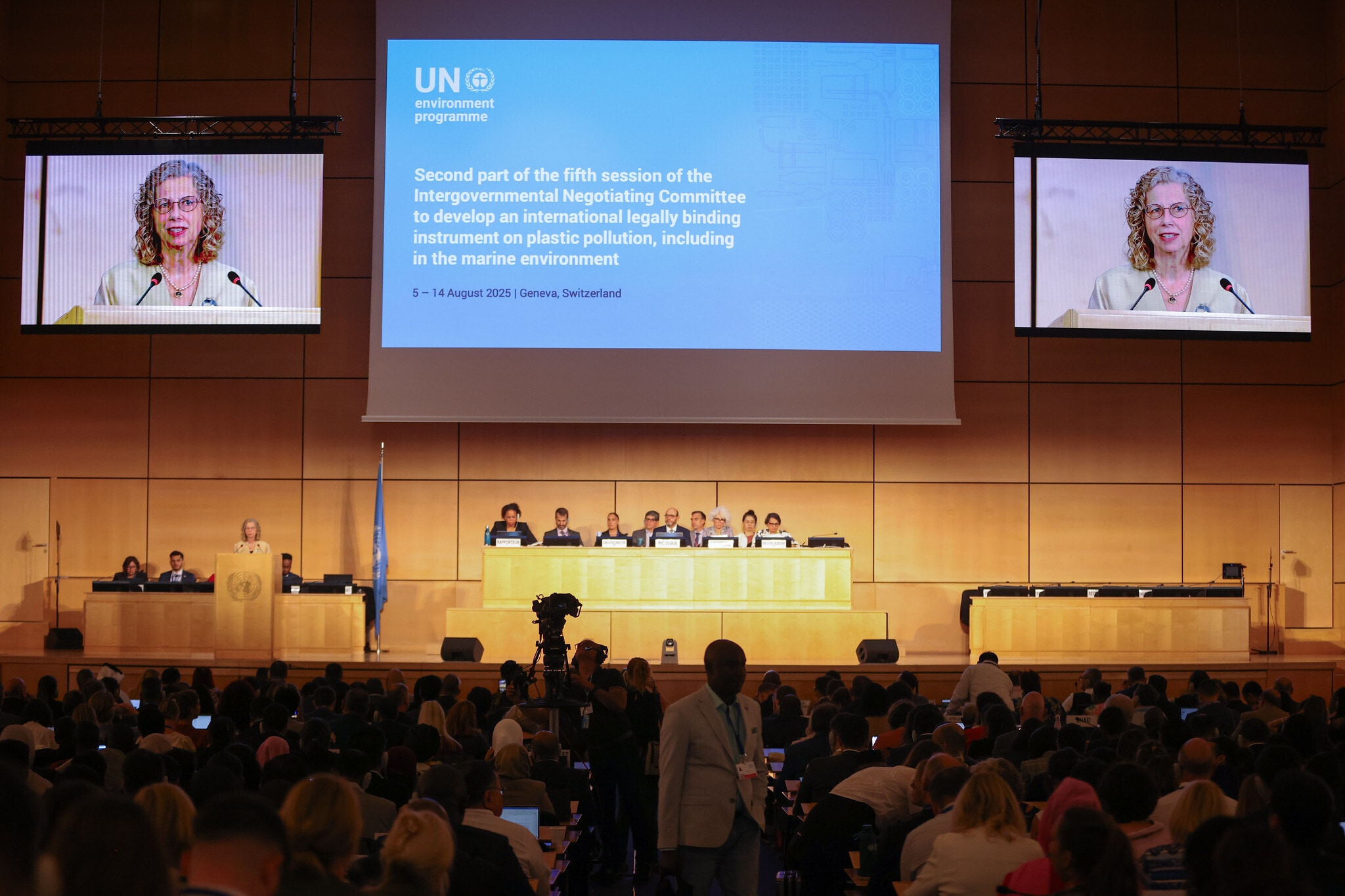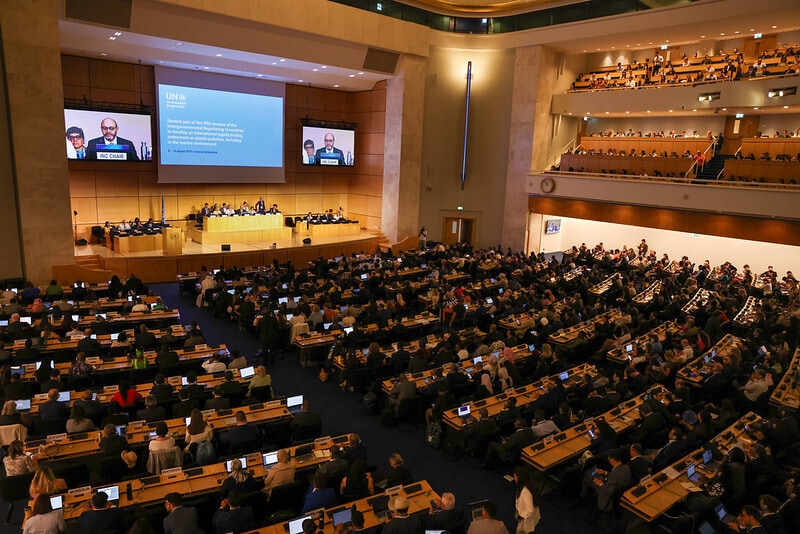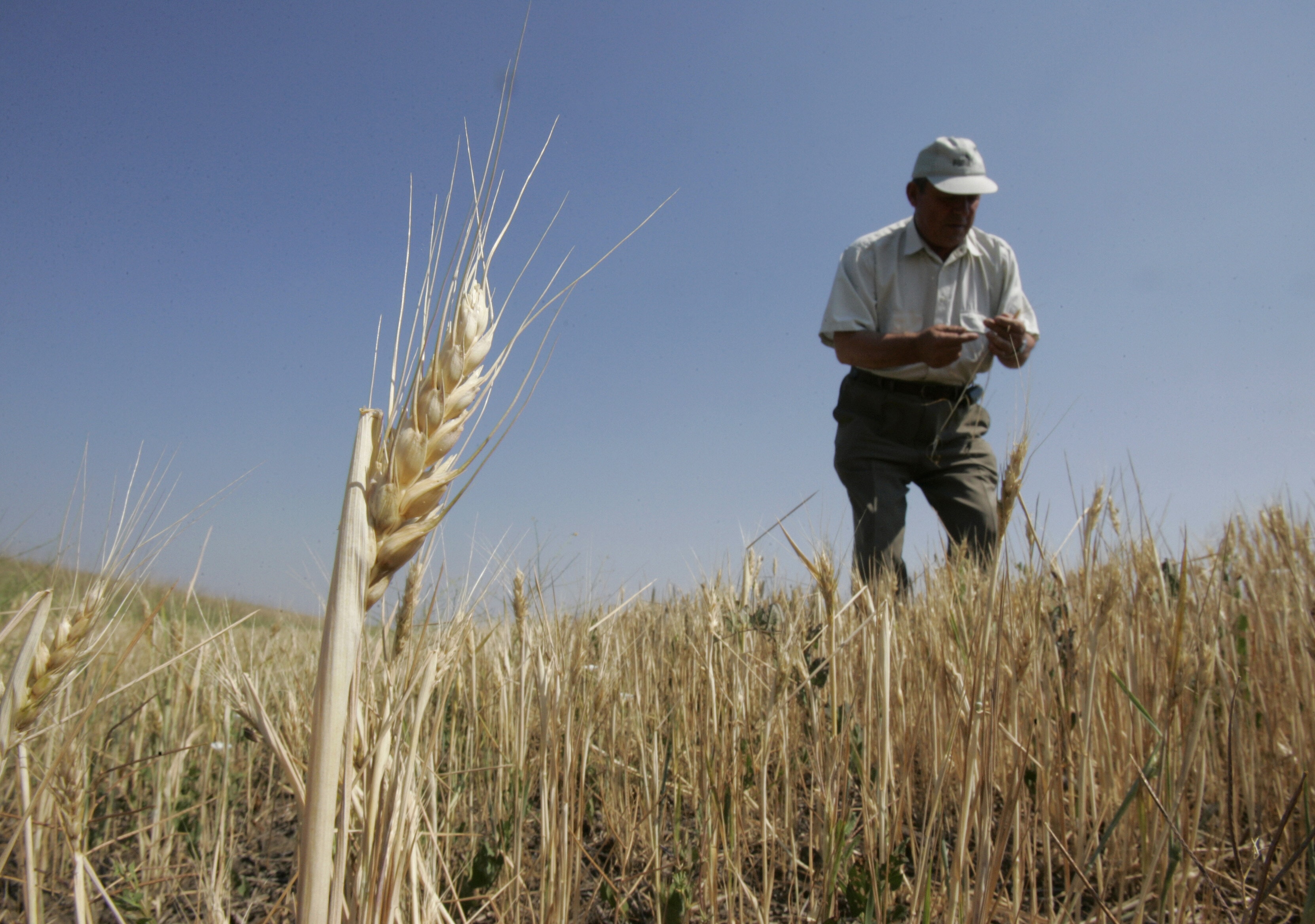These 13 innovative organizations are conserving and restoring India’s forest landscapes

India is home to at least 1.4 billion people and covers a land area of over 3.2mio square kilometers.
Image: Unsplash / Arnold Antoo
Stay up to date:
UpLink
- In September 2021, UpLink and 1t.org launched the Trillion Trees Challenge in India, in collaboration with the Forum of Young Global Leaders and the Global Shapers Community.
- The initiative invited successful ecopreneurship solutions that help promote ecosystem conservation and restoration, sustain livelihoods, foster food security, utilize technologies like AI and blockchain and mobilize city dwellers in the country.
- Over the coming months, 13 innovators will have an opportunity to scale their impact through promotion on social media, participation at exclusive events and introductions to experts and potential funders.
India is home to at least 1.4 billion people and covers a land area of over 3.2 million square kilometers. In other words, 17.7% of the world’s population lives on a meager 2.4% of the world’s land area. Despite this high population density, the sub-continent is coexisting with at least 7-8% of all recorded species, including 45,000 species of plants and 91,000 species of animals, and four of the 34 globally identified biodiversity hotspots are found in the country.
Striking a balance between human progress and environmental sustainability will be key to achieving India’s sustainable development and climate goals. It is against this background that the World Economic Forum and 1t.org are launching the 1t.org India Platform to enable public-private collaboration, spur multistakeholder action and ignite a thriving ecopreneurship ecosystem to conserve and restore India’s forest landscapes, while benefiting people.
How UpLink is helping to find innovations to solve challenges like this
In September 2021, 1t.org and UpLink launched the Trillion Trees: India Challenge to call for innovative solutions for forest conservation and landscape restoration that provide livelihoods and foster the economy. The challenge centered around four thematic areas that support the implementation of India’s commitment to restore 26 million hectares of degraded land by 2030 and create and additional carbon sink of 2.5 to 3 billion tons CO2 equivalent through additional forests: successful examples of ecopreneurship, supporting local livelihoods and agriculture, deploying technology for trees, and mobilizing city dwellers.
All solutions submitted on UpLink were carefully reviewed and assessed by the community of experts from 1t.org to elect an UpLink cohort of 13 innovators. Over the coming months, the selected Top Innovators will have an opportunity to share and learn from each other, and 1t.org and UpLink will work extensively with this group to scale their impact by promoting their work on our social media platforms, presenting them at our events and introducing them to experts and potential funders who can accelerate their solutions.
Here are the Top Innovators who are conserving and restoring India’s forest landscapes:
Acacia, based out of Ahmedabad, Gujarat implements greening solutions to increase urban forests and mass plantation projects across India. They specialize in Miyawaki forests tailored to the project requirements ranging from plantations connecting usable community spaces, or alternatively dense pockets of forests near high emission zones like traffic areas, and also large scale projects like the Sabarmati Riverfront.
“Avani” meaning Earth was founded in 1997, originally as the Kumaon chapter of the Barefoot College, focused at developing conservation-based livelihood opportunities that Sustain Rural Lifestyles. Avani Bio Energy uses a community-centric business model in the Himalayan state of Uttarakhand which transforms the rising risk of wildfires caused due to pine-needle litter, and turns it into electricity and charcoal.
Centre for Wildlife Studies
Centre for Wildlife Studies is a major wildlife research, conservation, policy, and education research organization possessing a deep understanding of the landscape and communities. Equipped with a profound understanding built up over four decades, they strive to reduce human-wildlife conflict, and create livelihoods by incentivizing farmers to transition from agro-crops to agroforestry based livelihoods around Bandipur and Nagarhole wildlife reserves in Karnataka (Western Ghats).
Farmers for Forests
Farmers for Forests is a dynamic team of young ecopreneurs using a unique approach - Payment for Ecosystem Services (PES) - to prevent deforestation and reforestation/afforestation activities. Tracking the forest cover through satellite and drone monitoring, they plan to connect projects to carbon credit markets. Their current areas of interest are Maharashtra, Jharkhand, and Madhya Pradesh.
GFV Farm Products and Services excel at building community-centric natural food forests with diverse and dense planting of short- and long-term fruit trees, known as ‘Good Food Village’. Urban communities are encouraged to own/support unused rural farmlands in the ‘village’ to improve the rural economy and generate employment. The Tamil Nadu based initiative goes a step further bringing in transparency through traceability systems using blockchain for farmers.
Gratitude Farms have built a food forest value chain. Infertile lands are converted into microbially-rich organic soil, while providing livelihoods for army veterans and rural women across Pondicherry and Tamil Nadu. Their offerings include farmland business, solar drying business, B2C sales (also through a mobile application), consulting and training.
Cauvery Calling is a large-scale movement seeking to achieve a tenth of India’s carbon sequestration goals for 2030. Equipped with significant government collaborations and innovative monitoring techniques, the initiative plans to mobilize 5.2 million farmers, and plant 2.42 billion trees in the 83,000 square kilometer area spread across the Cauvery river basin in Tamil Nadu and Karnataka in a span of 12 years, shifting to a tree-based agriculture.
Orgro Fibre is a Gujrat-based innovation restoration enabler that reduces single-use plastic waste generated in the process of large-scale plantations. These biodegradable sapling bags are made from agro-waste from wool, banana fibre, sugarcane, and jute.
SAI-Sustainable Agro works in partnership with farmers of Odisha, intercropping traditional crops with high-value tree plantations. This one-acre agroforestry model ensures farmer access to quality inputs and cultivation techniques, ensures direct market access as well as resilient livelihoods to young people and the landless.
Saytrees has perfected large scale reforestation and afforestation project management, working in multiple states across India. They facilitate reforesting 20,000 hectares of degraded croplands in Andhra Pradesh through multilayer cropping of diverse fruit and timber trees on farms with minimized inputs.
St. Jude's herbals have produced an inexpensive, efficient, and sustainable alternative to common pesticides. It is a toxicology-proven, herbal agri-biostimulant protecting crops against a broad spectrum of plant diseases. Farmers source the offered solutions through traditional as well as e-commerce channels.
Sustainable Green Initiative has refined its planting management system through scale and practice. They help farmers plant fruit trees helping create sustainable livelihoods, and combat hunger, poverty and climate change. Innovations in the supply chain like low cost seedlings, installing nurseries in close proximity, help reduce prices, and create employment.
TERI’s patented Mycorrhizal technology acts as a biofertilizer, as well as restoring abandoned fly ash ponds, chlor-alkali ash dumps and land loaded with distillery effluents. This enables better water and nutrient uptake from the soil to the plants and also assists roots in soil aggregation. This technology is particularly useful in the reclamation of barren land and improving productivity, as previously implemented in Delhi, Chhattisgarh, Andhra Pradesh, Gujrat, UAE, and Qatar.
UpLink, the World Economic Forum’s early-stage innovation initiative, is enabling and accelerating the purpose-driven entrepreneurs that are essential for a net-zero, nature-positive, and equitable future. To find out more and join the UpLink community, click here.
Don't miss any update on this topic
Create a free account and access your personalized content collection with our latest publications and analyses.
License and Republishing
World Economic Forum articles may be republished in accordance with the Creative Commons Attribution-NonCommercial-NoDerivatives 4.0 International Public License, and in accordance with our Terms of Use.
The views expressed in this article are those of the author alone and not the World Economic Forum.
Related topics:
Forum Stories newsletter
Bringing you weekly curated insights and analysis on the global issues that matter.
More on Nature and BiodiversitySee all
David Elliott
August 27, 2025
Tom Crowfoot
August 20, 2025
Chavalit Frederick Tsao
August 19, 2025
Andrea Willige
August 15, 2025
Tom Crowfoot
August 14, 2025







